16. March 2020 - 12:29
The Orthodox Encyclopedia Religious Scientific Center has published a unique collection of works entitled, The Reunification of the Kiev Metropolitanate with the Russian Orthodox Church. 1676–1687. Research and Documents. It includes many new important archival documents that contain additional information on the circumstances of this reunification. We are discussing the immediacy of this book and its irrefutable conclusions with Sergei Leonidovich Kravets, the director of Orthodox Encyclopedia Center.
19. February 2020 - 9:44
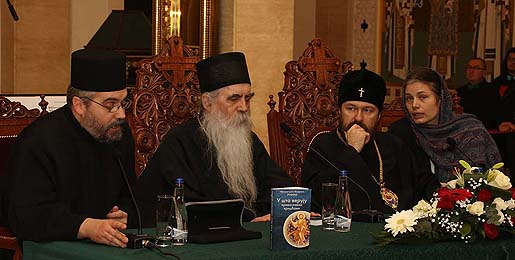 A presentation of the book “An Outline of Orthodox Faith” written by Metropolitan Hilarion of Volkolamsk (Alfeev) took place in the crypt of the Church of St. Sava, Belgrade, on February 17, 2020.
A presentation of the book “An Outline of Orthodox Faith” written by Metropolitan Hilarion of Volkolamsk (Alfeev) took place in the crypt of the Church of St. Sava, Belgrade, on February 17, 2020.
Contemporary Catechism, written on three hundred pages (with photographs) divided into 66 sections under the title “An Outline of Orthodox Faith” by Metropolitan Hilarion of Volkolamsk and in the edition of the Representation of Serbian Patriarchate in Moscow and the publishing house "Pravoslavac" from Sabac, was presented in the crypt of the Church of St. Sava in the Vracar district of Belgrade, on February 17, 2020. The book was translated from Russian by Bishop Anthonije (Pantelic) of Moravica, Vicar Bishop of the Serbian Patriarch.
5. February 2020 - 12:08
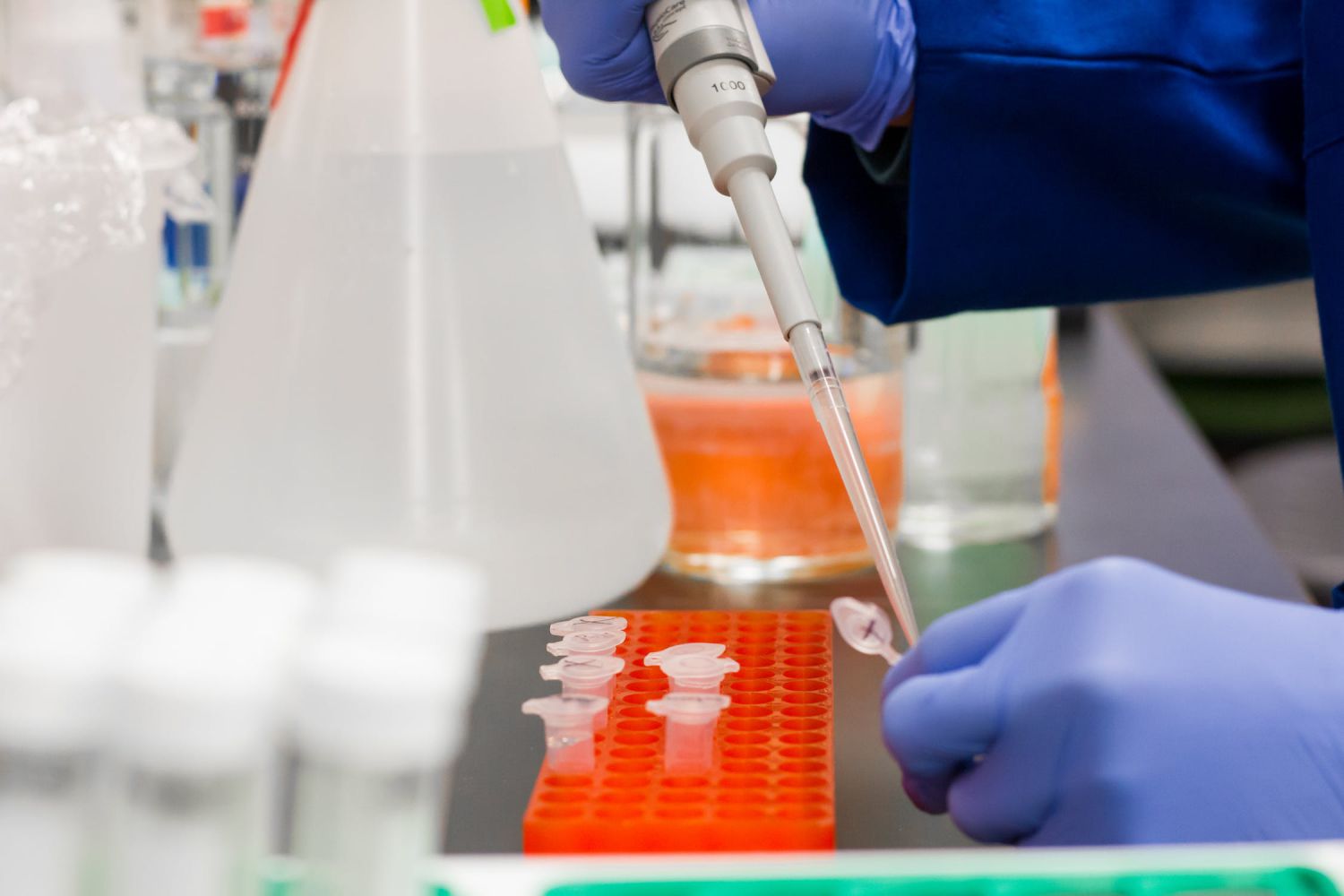 At the start of the millennium, 4 February was declared World Cancer Day. It began with six cancer experts who convened in Paris in 1999. With the year 2000 imminent, the group was determined that the global challenge of cancer would not be forgotten in the new century.
At the start of the millennium, 4 February was declared World Cancer Day. It began with six cancer experts who convened in Paris in 1999. With the year 2000 imminent, the group was determined that the global challenge of cancer would not be forgotten in the new century.
Together, the six leaders drafted a Charter that outlined a vision for addressing the impact of cancer on “human life, human suffering and on the productivity of nations”.
6. January 2020 - 11:54
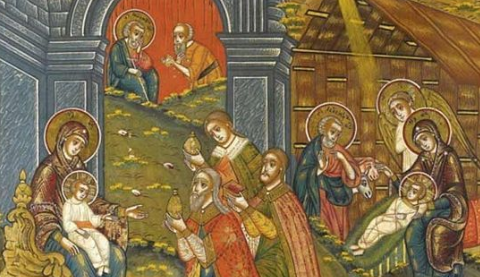 In the name of the Father, and of the Son, and of the Holy Spirit!
In the name of the Father, and of the Son, and of the Holy Spirit!
In today’s Gospel readings of the Royal Hours and the Liturgy we have heard the story of the Birth of the Messiah from the mouths of different Evangelists.
To confirm the fact that all that happened 2,000 years ago is true, the Apostles not only refer to the words of the witnesses but also to geographical and even astronomical evidence.
31. December 2019 - 12:05
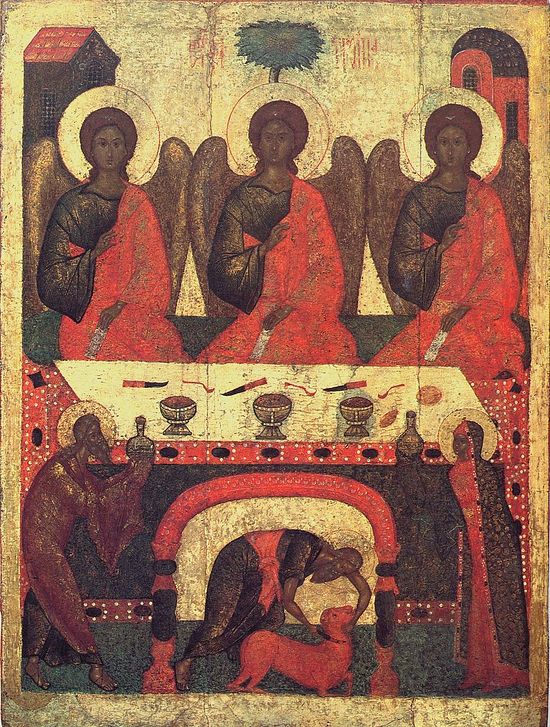 The author of this definitive article addressing the matter of homosexuality in the light of Orthodox theology is Bradley Nassif, a professor of biblical and theological studies at North Park University, Chicago. He holds a PhD in patristics from Fordham University (directed by the late Father John Meyendorff), an MDiv from St. Vladimir’s Orthodox Seminary, MAs in New Testament from Denver Seminary and European History from Wichita State University, and a BA in Religion and Philosophy from Friends University. His most recent book is a co-edited volume, The Philokalia: A Classic Text of Orthodox Spirituality (Oxford University Press).
The author of this definitive article addressing the matter of homosexuality in the light of Orthodox theology is Bradley Nassif, a professor of biblical and theological studies at North Park University, Chicago. He holds a PhD in patristics from Fordham University (directed by the late Father John Meyendorff), an MDiv from St. Vladimir’s Orthodox Seminary, MAs in New Testament from Denver Seminary and European History from Wichita State University, and a BA in Religion and Philosophy from Friends University. His most recent book is a co-edited volume, The Philokalia: A Classic Text of Orthodox Spirituality (Oxford University Press).
With the author’s permission we are reproducing Dr. Nassif’s article, which first appeared in The Wheel, on OrthoChristian.com, to make it more available.
G. K. Chesterton once said that one should never tear down a fence unless he knows why it was put there in the first place. In this article, I will attempt to explain some of the foundational reasons why the Church has put a fence around its beliefs regarding the nature and purpose of human sexuality. Those beliefs are summarized in a “Statement on Marriage and Sexuality” by the Assembly of Canonical Orthodox Bishops of the United States:
30. December 2019 - 16:23
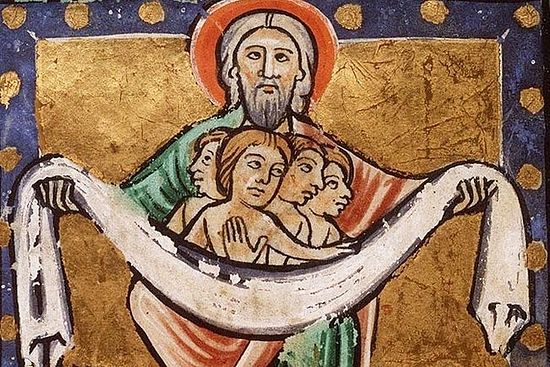 In the Name of the Father and of the Son and of the Holy Spirit.
In the Name of the Father and of the Son and of the Holy Spirit.
'Many are called but few are chosen'. So says Christ in today's Gospel. If we think of the knowledge of God conserved among different peoples in the world before Christ, these words have a special significance.
 The author of this definitive article addressing the matter of homosexuality in the light of Orthodox theology is Bradley Nassif, a professor of biblical and theological studies at North Park University, Chicago. He holds a PhD in patristics from Fordham University (directed by the late Father John Meyendorff), an MDiv from St. Vladimir’s Orthodox Seminary, MAs in New Testament from Denver Seminary and European History from Wichita State University, and a BA in Religion and Philosophy from Friends University. His most recent book is a co-edited volume, The Philokalia: A Classic Text of Orthodox Spirituality (Oxford University Press).
The author of this definitive article addressing the matter of homosexuality in the light of Orthodox theology is Bradley Nassif, a professor of biblical and theological studies at North Park University, Chicago. He holds a PhD in patristics from Fordham University (directed by the late Father John Meyendorff), an MDiv from St. Vladimir’s Orthodox Seminary, MAs in New Testament from Denver Seminary and European History from Wichita State University, and a BA in Religion and Philosophy from Friends University. His most recent book is a co-edited volume, The Philokalia: A Classic Text of Orthodox Spirituality (Oxford University Press).
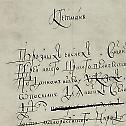
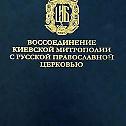
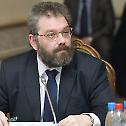
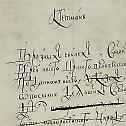
 A presentation of the book “An Outline of Orthodox Faith” written by Metropolitan Hilarion of Volkolamsk (Alfeev) took place in the crypt of the Church of St. Sava, Belgrade, on February 17, 2020.
A presentation of the book “An Outline of Orthodox Faith” written by Metropolitan Hilarion of Volkolamsk (Alfeev) took place in the crypt of the Church of St. Sava, Belgrade, on February 17, 2020. At the start of the millennium, 4 February was declared World Cancer Day. It began with six cancer experts who convened in Paris in 1999. With the year 2000 imminent, the group was determined that the global challenge of cancer would not be forgotten in the new century.
At the start of the millennium, 4 February was declared World Cancer Day. It began with six cancer experts who convened in Paris in 1999. With the year 2000 imminent, the group was determined that the global challenge of cancer would not be forgotten in the new century. In the name of the Father, and of the Son, and of the Holy Spirit!
In the name of the Father, and of the Son, and of the Holy Spirit! In the Name of the Father and of the Son and of the Holy Spirit.
In the Name of the Father and of the Son and of the Holy Spirit.